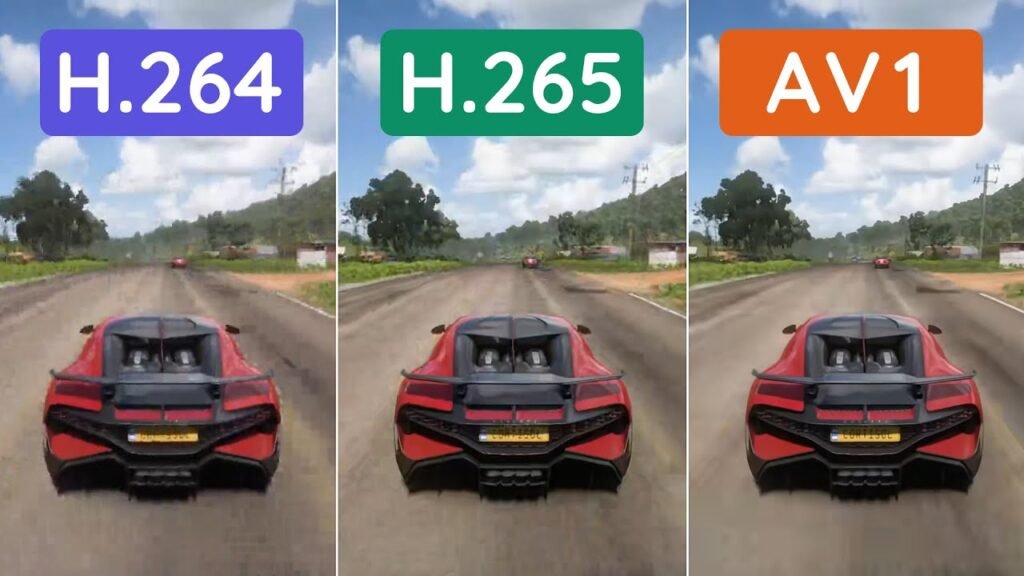Introduction to VC -1 and H264
In recent years, “VC -1 vs H264” has become a popular topic on Reddit and other tech forums, as users debate which codec offers the best video quality, compression efficiency, and compatibility. Both VC-1 and H.264 are video codecs, essentially compression technologies that reduce video file sizes without significantly compromising quality. However, each codec has unique qualities that make it better suited for certain applications.
VC-1, developed by Microsoft, has been around since the early 2000s. It was originally designed to improve video quality on DVDs and HD-DVDs and later became popular for Blu-ray discs. H.264, or Advanced Video Coding (AVC), is a part of the MPEG family and is known for its high efficiency. Released a few years after VC-1, H.264 quickly gained traction in the streaming and digital video space due to its excellent compression capabilities and compatibility across multiple devices.
The discussion around “VC -1 vs H264 Reddit” often focuses on these differences. In this article, we’ll dive into the technical aspects, performance in real-world scenarios, and preferences from Reddit users, which offer insight into why H.264 is more commonly used today than VC-1.
Technical Differences Between VC -1 and H264
When it comes to comparing VC-1 and H.264, understanding their technical differences is crucial. One major distinction lies in compression efficiency. H.264 is generally known for better compression efficiency, meaning it can produce high-quality videos with smaller file sizes. VC-1, while offering good quality, typically requires a higher bitrate for the same quality level as H.264. This means that files encoded with H.264 are usually smaller than those encoded with VC-1, which is a significant advantage for streaming and storage.
Compatibility is another factor often discussed in “VC -1 vs H264 Reddit” threads. H.264 has broader compatibility and is supported on almost all devices, from smartphones and tablets to PCs and media players. VC-1, on the other hand, has more limited compatibility. While it’s supported on some Blu-ray players and Windows devices, it’s not as universally accepted as H.264. This makes H.264 a more versatile choice for those looking to ensure that their videos play on a wide range of platforms.
Lastly, encoding and decoding speed also vary between the two codecs. H.264 generally requires less processing power to decode, making it a better option for mobile devices and lower-end hardware. VC-1, while not extremely demanding, tends to need slightly more power, which can affect playback on certain devices. Overall, these technical differences make H.264 the preferred choice for most modern applications.
Performance in Real-World Scenarios
When comparing VC-1 and H.264 in real-world scenarios, the discussion often centers on streaming and physical media. In terms of streaming, H.264 is generally better suited for online platforms. Its efficient compression allows for smoother streaming experiences on platforms like YouTube and Netflix, even on slower internet connections. Many Reddit users in the “VC -1 vs H264” discussions note that H.264 streams with fewer interruptions and buffering issues, making it a more reliable choice for online video consumption.
When it comes to physical media like Blu-ray, VC-1 was once a popular choice and is still found on some older Blu-ray discs. However, H.264 has largely replaced it due to its better compression and playback quality. This is something frequently mentioned on Reddit, with users observing that H.264 offers sharper images and fewer artifacts at similar resolutions compared to VC-1.
For mobile and desktop playback, H.264’s compatibility and efficiency make it the top choice. It performs well on both high-end and lower-powered devices, ensuring that videos play smoothly without putting excessive strain on the hardware. VC-1, while still functional, may cause occasional stuttering or lag on less powerful devices. Based on user feedback on Reddit, H.264 is usually the codec of choice for people prioritizing playback ease across multiple devices.
User Preferences and Opinions on Reddit

Browsing through “VC -1 vs H264 Reddit” threads reveals a range of user opinions and preferences. One recurring theme is the quality vs. file size debate. Many users appreciate H.264 for its ability to balance quality and file size effectively. Users who prioritize smaller file sizes without compromising much on video quality tend to prefer H.264 over VC-1. They find that H.264 produces crisp, clear videos that are manageable in size, making it suitable for both online streaming and local storage.
Compatibility issues also appear frequently in these Reddit discussions. Since H.264 works on a wide range of devices and software, users often recommend it for projects that require maximum compatibility. In contrast, VC-1’s limited compatibility means it’s better suited for specialized use cases, such as archival purposes or older Blu-ray collections. Many users note that if compatibility across multiple devices is a priority, H.264 is the safer choice.
Lastly, in discussions about encoding preferences, Reddit users often mention their choice of codec for personal projects. H.264 is generally favored for home media libraries, video projects, and streaming. For those who occasionally use VC-1, it’s often due to specific use cases, like preserving older videos or working with specific media formats that still use VC-1. However, for new projects, H.264 is almost universally recommended as it provides a good balance of quality, efficiency, and compatibility.
Future of VC -1 and H264
Looking ahead, many Reddit users believe that H.264 will continue to dominate over VC-1, though newer codecs are starting to enter the scene. H.264 has become an industry standard due to its broad compatibility and efficiency. Even though it’s been around for over a decade, it remains widely used in everything from video calls to streaming services. Many “VC -1 vs H264 Reddit” discussions highlight the codec’s staying power and suggest that it will remain relevant for years to come.
On the other hand, VC-1 is gradually fading out. While it served its purpose well in the early days of high-definition video, it hasn’t kept pace with advancements in video compression technology. Today, VC-1 is mostly found in older Blu-ray and HD-DVD content, and newer codecs like H.264 and H.265 (HEVC) have largely replaced it. Reddit users generally agree that VC-1’s role will continue to decline as more efficient codecs become standard.
Emerging codecs like H.265 (HEVC) and AV1 are often mentioned in “VC -1 vs H264 Reddit” threads. These codecs offer even better compression than H.264, making them ideal for high-resolution content, including 4K and 8K video. Some users believe that as streaming quality improves and higher resolutions become more common, newer codecs will eventually take over H.264’s place as the industry leader. However, for now, H.264 remains the most practical choice for most applications.
Conclusion
In summary, the “VC -1 vs H264 Reddit” discussion often centers around the strengths and weaknesses of each codec. H.264 is favored for its efficient compression, smaller file sizes, and broad compatibility, making it ideal for streaming, mobile devices, and newer Blu-ray discs. VC-1, while still a viable option in some specific scenarios, has largely fallen out of favor due to its higher bitrate requirements and limited compatibility.
For anyone considering which codec to use, H.264 is generally the better choice. It offers a balance of quality, efficiency, and device support that’s hard to beat. While VC-1 may still have a role in archiving older media, the future clearly belongs to H.264 and newer codecs like H.265 and AV1. Based on Reddit discussions, it’s safe to say that H.264 will remain a mainstay in video technology for the foreseeable future.



